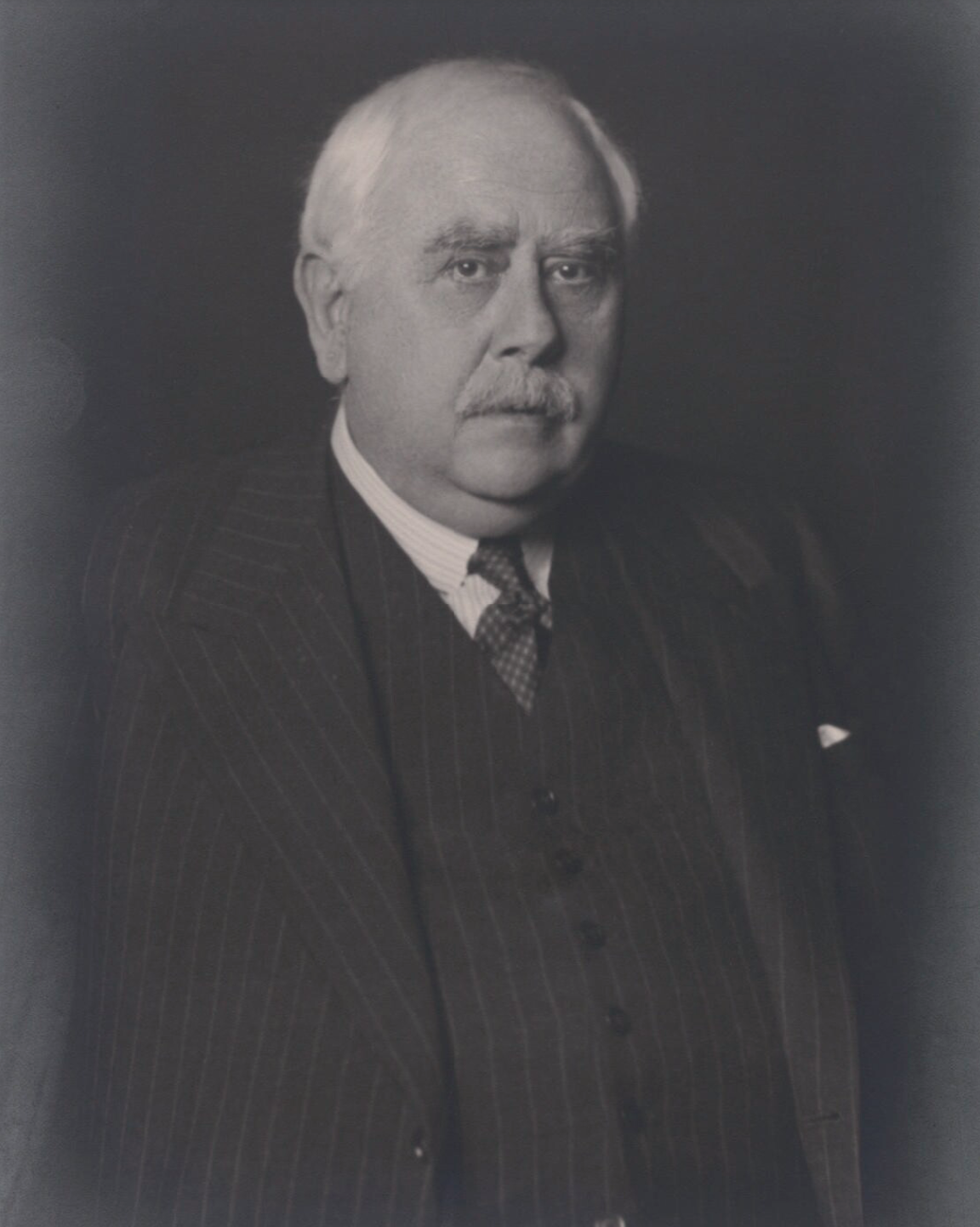1870 - 1946
 Walter Langdon Brown (like Thompson-Walker, he only hyphenated his surname after he was knighted in 1935) was born in Bedford on 13 August 1870. He was educated at Owens College Manchester, St. John’s College Cambridge and St. Bartholomew’s Hospital. His junior training was interrupted by the Boer War, where he served as a physician in the Imperial Yeomanry Hospital, Pretoria. He became physician to the London Metropolitan Hospital as well as St Bartholomew's Hospital. His early years as an assistant physician at St. Bartholomew’s were again interrupted by a spell as a Captain in the Royal Army Medical Corps at the 1st General Hospital in the First World War. This London Territorial hospital was staffed by doctors and nurses from Barts. He became full physician at St Bartholomew's in 1924 and consulting physician in 1930.
Walter Langdon Brown (like Thompson-Walker, he only hyphenated his surname after he was knighted in 1935) was born in Bedford on 13 August 1870. He was educated at Owens College Manchester, St. John’s College Cambridge and St. Bartholomew’s Hospital. His junior training was interrupted by the Boer War, where he served as a physician in the Imperial Yeomanry Hospital, Pretoria. He became physician to the London Metropolitan Hospital as well as St Bartholomew's Hospital. His early years as an assistant physician at St. Bartholomew’s were again interrupted by a spell as a Captain in the Royal Army Medical Corps at the 1st General Hospital in the First World War. This London Territorial hospital was staffed by doctors and nurses from Barts. He became full physician at St Bartholomew's in 1924 and consulting physician in 1930.
Langdon-Brown was an early expert in physiology and in endocrinology; some have called him the father of clinical endocrinology. He famously called the pituitary gland "the leader of the endocrine orchestra" later revising this to the hypothalamus. He was president of five sections of the Royal Society of Medicine; Urology, Therapeutics, Pharmacology, History of Medicine and became the first President of the Section of Endocrinology.
Unsurprisingly, in his presidential address on 23 October 1923 to the urology section, he spoke on "The Influence of the Endocrines on the work of the Kidney". Once again the section elected a physician as its president. This certainly wasn't a token position - he clearly had an interest in urinary diseases, Brown had lectured to the section the previous year. He spoke on uraemia attempting to relate the clinical signs and symptoms to physiology, a lifelong quest and passion of his.
In 1924, at the meeting on 27 March in Langdon-Brown's presidential year, Clifford Morson spoke on his management of prostate cancer. This is an interesting summary of what was available for that disease at that time. Morson advocated radical prostatectomy via the suprapubic route, favouring this over Hugh Hampton Young's perineal approach. He had also tried various radiotherapy and brachytherapy approaches but, although perhaps curing the cancer, the side effects had invariably killed the patients. The impression he gives however, was that most British urologists would only treat this disease palliatively. Sadly, the discussion of the section has not been published with his paper. In a very modern sounding final sentence, Morson notes that it would be ten years before he could say if his approach to prostate cancer treatment was correct. At the May 1924 meeting, the discussion was on polycystic kidney disease and was led by Sir Thomas Horder.
From 1932, Langdon-Brown was Regius professor of physic at Cambridge and physician to Addenbrooke’s Hospital. He died in Cambridge on 3rd October 1946.
Read Langdon-Brown's presidential address